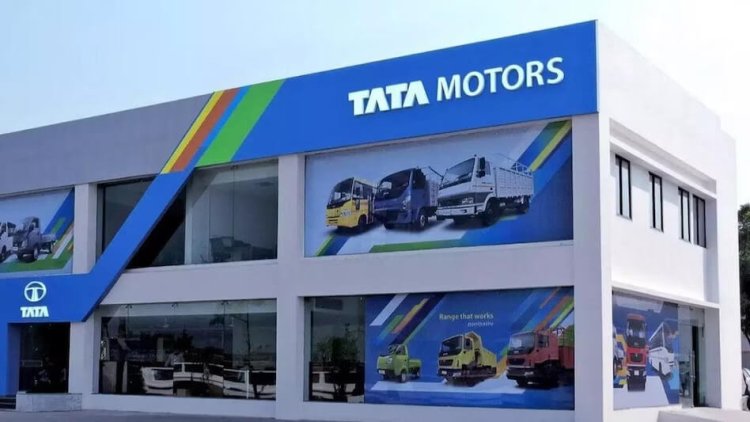Tata Motors DVR Share Price Soars 18%: Understanding DVR Shares and Conversions
Tata Motors DVR Share Price Surges: Shares of Tata Motors DVR rose by nearly 18% and reached a 52-week high of ₹440 on the BSE exchange.

Tata Motors DVR Share Price Surges: Shares of Tata Motors DVR rose by nearly 18% and reached a 52-week high of ₹440 on the BSE exchange. This increase occurred after Tata Motors announced its plan to convert DVR shares to ordinary shares.
The stock also saw a 17% jump on the NSE exchange.
Tata Motors to Cancel DVR Shares: Tata Motors is converting DVR shares to ordinary shares. According to Mint's report, Tata Motors announced that for every 10 'A' ordinary shares with a face value of ₹2, the company will issue 7 fully paid-up new ordinary shares with a face value of ₹2 upon the effectiveness of the Scheme. This issuance will be the consideration for reducing and canceling the 'A' ordinary shares.
The termination of the ADS (American Depositary Shares) and the proposed capital reduction of 'A' Ordinary shares will simplify and consolidate all traded equity securities of Tata Motors into Ordinary Shares listed only on NSE and BSE.
Earlier in January, Tata Motors had announced the voluntary delisting of its American Depositary Shares from the New York Stock Exchange.
What are DVR Shares? DVR stands for differential voting rights. These shares were first issued by Tata Motors in 2008.
DVR shares offer different voting rights compared to regular equity shares. In the case of High-Differential Voting Rights, shareholders have more voting power, while in the case of Low-Differential Voting Rights (DVRs), shareholders have fewer voting rights compared to regular shares.
Companies often use DVR shares to raise money without diluting their effective control. They compensate for the lower voting rights by paying a dividend premium of 10-20% for DVR shares.
Impact of DVR Shares Conversion to Tata Motors Shares: The conversion of DVR shares will lead to a 4.2% reduction in the number of outstanding equity shares, benefiting all shareholders.
Brokerage firm Nirmal Bang suggests that the capital reduction consideration translates to a 23% premium to the 'A' ordinary share price, which will make earnings per share (EPS) accretive for all shareholders.
Upon completion, the promoter and promoter group's effective voting rights will be reduced by 3.16%.
Tata Motors and Tata Motors DVR shareholders will experience simplified and consolidated trading of Tata Motors equity shares. The reorganization will reduce the number of outstanding equity shares and be earnings accretive for shareholders.
The whole procedure is expected to be completed in 12-15 months.
Disclaimer: Investors are advised to consult certified experts before making any investment decisions. The views and recommendations provided above are from individual analysts and broking companies, not Mint's opinion.
What's Your Reaction?
















